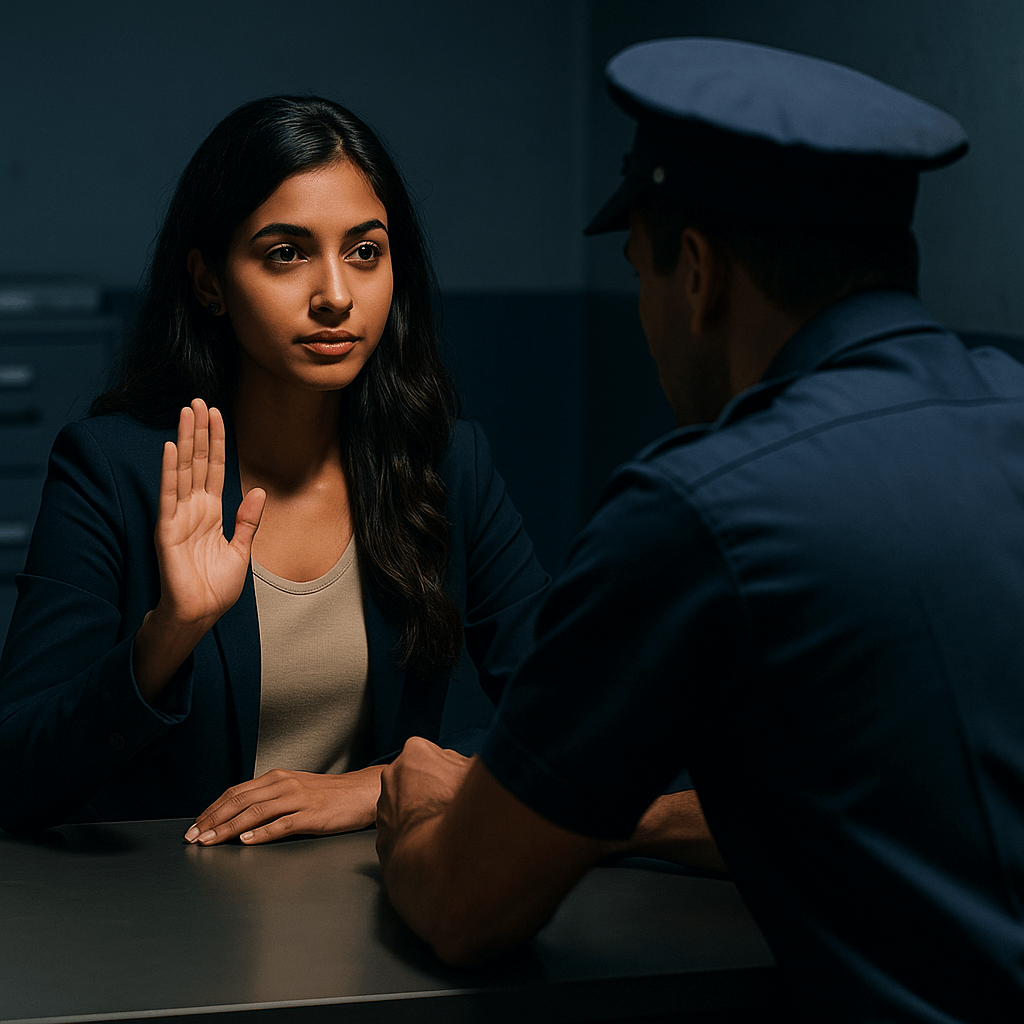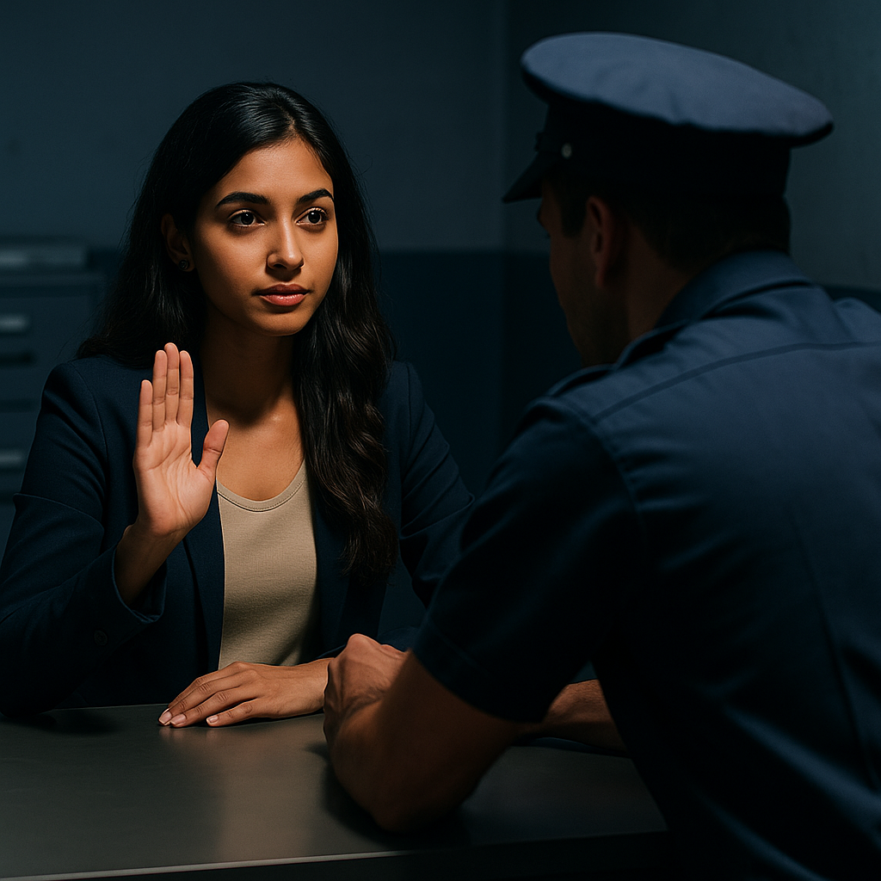
🤐 Your Right to Remain Silent | Article 20(3) of the Indian Constitution ⚖️
The Right to Remain Silent is one of the most powerful protections guaranteed by the Constitution of India.
Enshrined under Article 20(3), it ensures that no person accused of an offence can be forced to confess, testify, or speak against themselves.
⚖️ What Article 20(3) Says
“No person accused of any offence shall be compelled to be a witness against himself.”
This simple yet powerful line forms the backbone of the Right against Self-Incrimination.
It protects every citizen from being pressured into giving a statement that could be used against them in court.
🚨 Why This Right Matters
- 🤐 Prevents forced confessions under police pressure.
- ⚖️ Protects personal liberty and human dignity during investigation.
- 🧠 Ensures that no one is treated as guilty until proven so.
It is a cornerstone of a fair criminal justice system and an essential safeguard against misuse of power by investigative authorities.
👩⚖️ The Landmark Case: Nandini Satpathy v. P.L. Dani (1978)
In this landmark case, the Supreme Court of India expanded the meaning of Article 20(3).
Nandini Satpathy, a former Chief Minister of Odisha, was summoned for police questioning and refused to answer certain questions that she felt could incriminate her.
The Court held that her refusal was justified and that no person can be compelled to answer questions that may be self-incriminating.
The Court further stated that the Right to Silence extends to police investigations — not just courtrooms.
“No one can be forced to answer questions which would expose them to guilt, penalty, or forfeiture.”
— Justice Krishna Iyer, 1978
📘 Related Legal Provisions
- 📜 Section 161(2) CrPC – No person can be forced to answer questions that may expose them to a criminal charge.
- ⚖️ Article 21 – Right to life and personal liberty supports freedom from coercion.
- 🏛️ Evidence Act, Section 24 – Confessions caused by threat, inducement, or promise are inadmissible in court.
🧩 Practical Takeaways
- 🚨 You have the Right to Stay Silent during police questioning.
- 🧑⚖️ You may request the presence of a lawyer before answering.
- 🚫 Silence cannot be treated as guilt or obstruction of justice.
Remember — this right is not about hiding the truth, but about ensuring that justice is achieved without coercion or fear.
📘 Free Study Material for Law Students!
Download our FREE study material prepared by Delhi Law Academy’s expert faculty.
💬 Frequently Asked Questions on the Right to Remain Silent
It means that no person accused of a crime can be forced to speak or confess anything that may be used against them in court.
The police cannot threaten or coerce you into making a statement.
You can politely say, “I choose to remain silent and would like to consult my lawyer.”
This ruling strengthened the scope of Article 20(3) protections.
The Right to Legal Aid (Article 39A) ensures you have access to a lawyer if you cannot afford one.
Together, they safeguard fairness in the criminal justice process.
It is part of your constitutional protection from the moment you are accused or questioned.
Contact us
📍 Delhi Law Academy – Jaipur Branch
6C, Tower 2, Coaching Hub, Pratap Nagar, Jaipur – 302033
📞 Phone:
+91 9911916552
+91 8447285606
✉️ Email:
contactus@delhilawacademy.com

